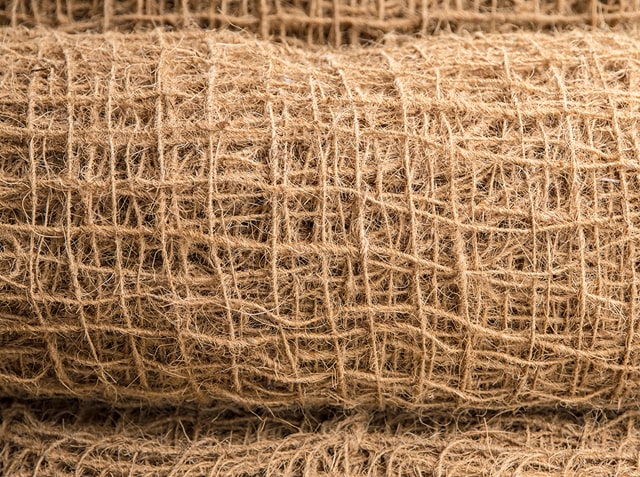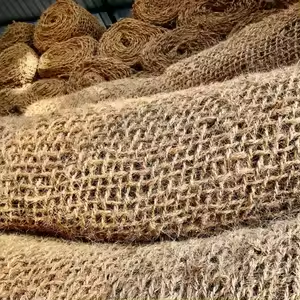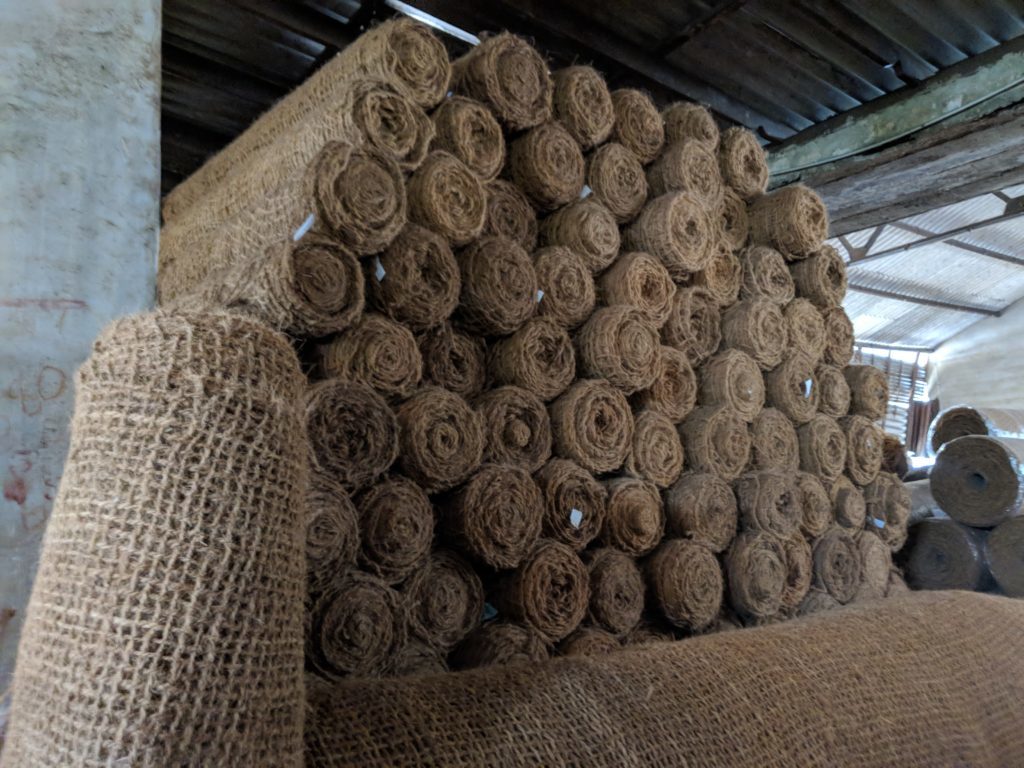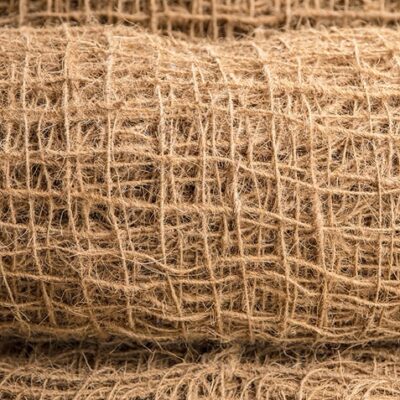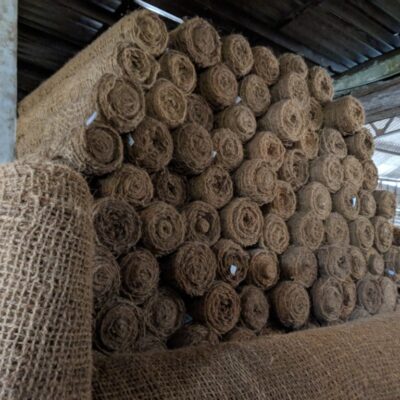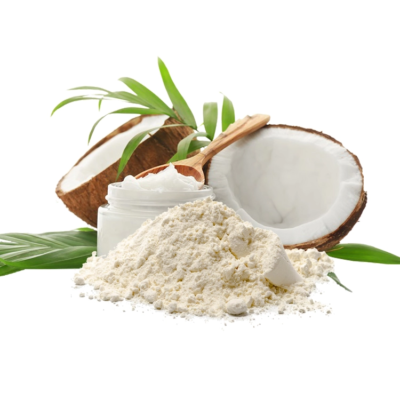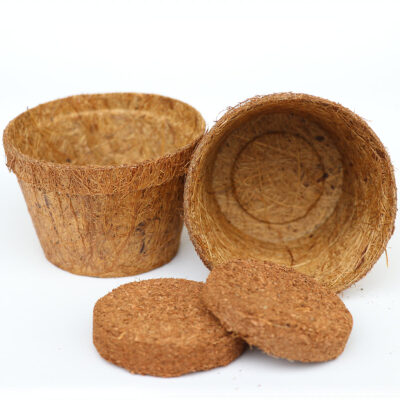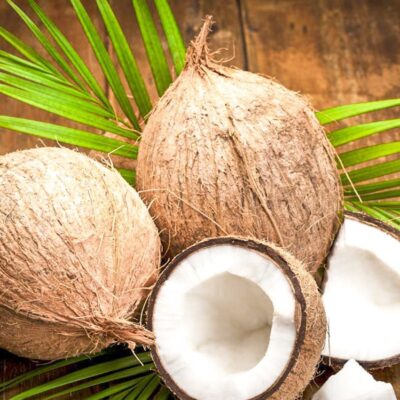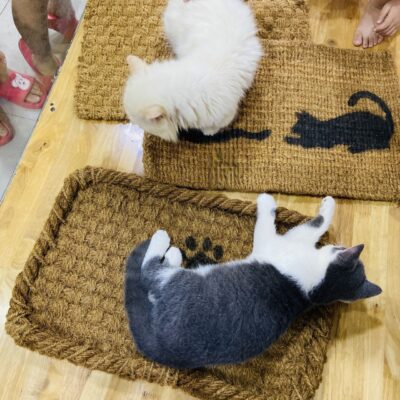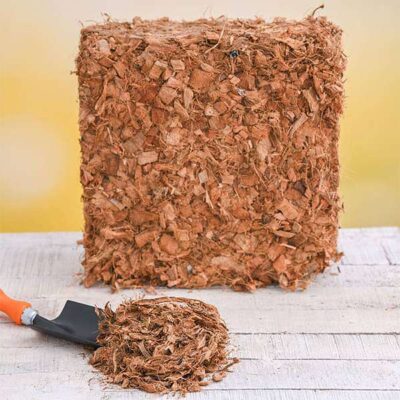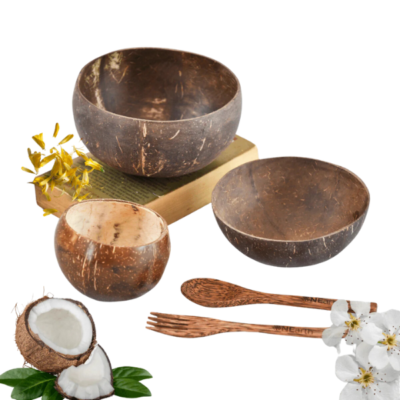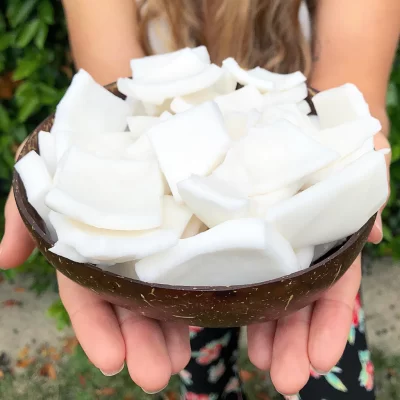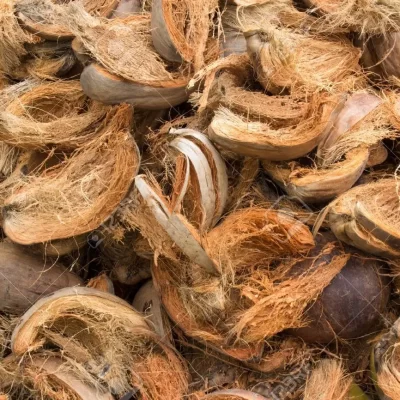Price: Contact
Coir nets are woven by hand with skilled workers. The source of raw materials is abundant and quality only , by weaving coconut fibers into small meshes, forming a strong and flexible mesh array .
- Product Type Other Fiber
- Pattern Dyed
- Feature Sustainable
- Material Natural Coconut Fibre
- Fiber Length 5-25cm
- Fineness Natural
Coconut fiber mesh, also known as coir netting or coconut coir matting, is a versatile and eco-friendly material derived from the fibrous husk of coconuts. With its durable and porous structure, coconut fiber mesh finds a wide range of practical applications in landscaping, erosion control, gardening, and environmental restoration projects.

One of the primary uses of coconut fiber mesh is in erosion control and soil stabilization. Its natural fibers create a strong and resilient barrier that helps prevent soil erosion caused by wind, water runoff, and slope instability. By anchoring soil particles and promoting vegetation growth, coconut fiber mesh protects vulnerable landscapes, preserves topsoil, and restores ecological balance in erosion-prone areas.
In landscaping and gardening, coconut fiber mesh serves as a sustainable alternative to synthetic weed barriers and landscaping fabrics. Its porous texture allows air, water, and nutrients to penetrate the soil, promoting healthy root development and moisture retention. Additionally, coconut fiber mesh acts as a protective mulch layer, suppressing weed growth, regulating soil temperature, and reducing water evaporation, thus conserving water and minimizing maintenance requirements.
Moreover, coconut fiber mesh is utilized in ecological restoration projects to enhance habitat restoration, wetland rehabilitation, and shoreline stabilization efforts. Its biodegradable nature ensures minimal environmental impact, as the mesh gradually decomposes over time, enriching the soil with organic matter and supporting native plant species establishment.
Beyond its practical applications, coconut fiber mesh is valued for its sustainability and renewable qualities. As a natural byproduct of coconut cultivation, it offers an environmentally friendly alternative to conventional landscaping materials, reducing reliance on synthetic chemicals and minimizing waste generation.
In summary, coconut fiber mesh is a versatile and sustainable material that plays a vital role in environmental conservation, landscaping, and soil management. With its erosion control capabilities, water-saving properties, and ecological benefits, coconut fiber mesh exemplifies the harmony between human needs and environmental stewardship, offering a natural solution for sustainable land management practices.

